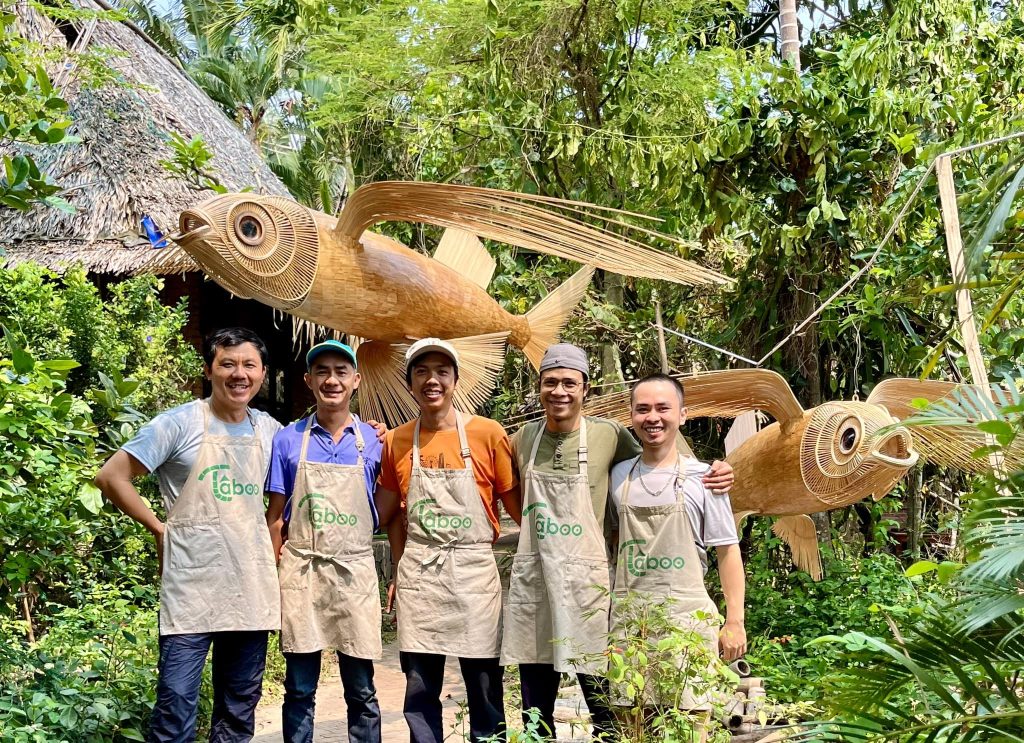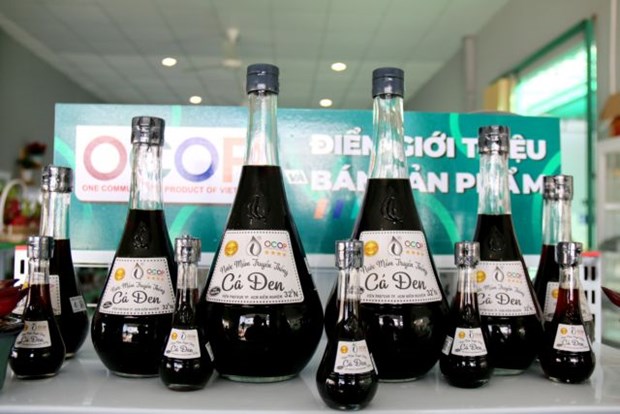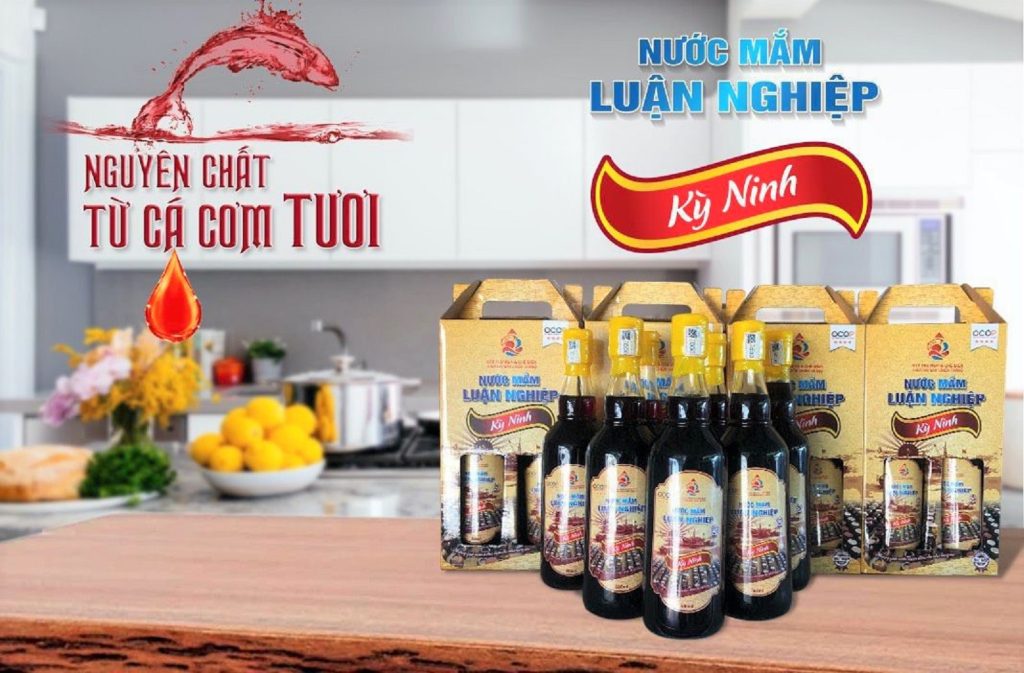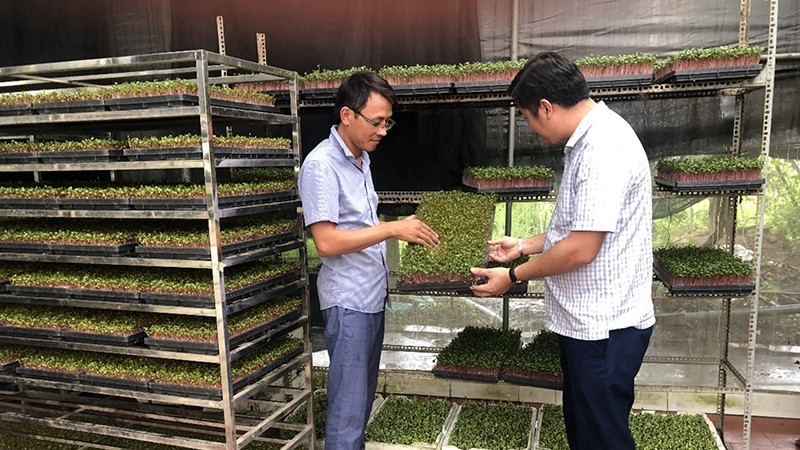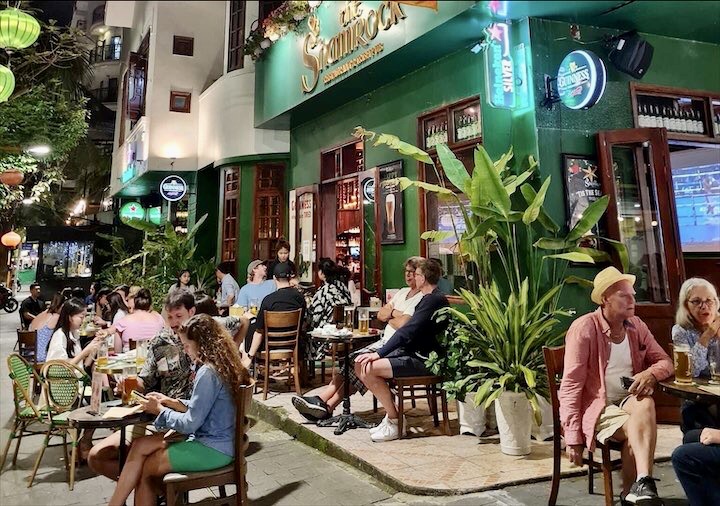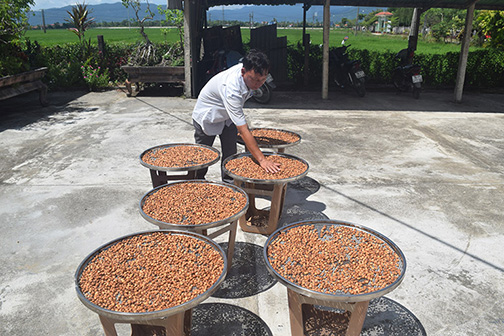Promoting the role of stakeholders
Am Ha village, Bong Am commune (now Tuan Dao commune) is known for its traditional candle and incense products. At one time, more than 80% of households in the village engaged in production. However, due to manual production, low output and lack of attention to the market, their products faced difficulty finding a foothold. Now only nearly a dozen households maintain the craft, which is often bustling near the Lunar New Year.
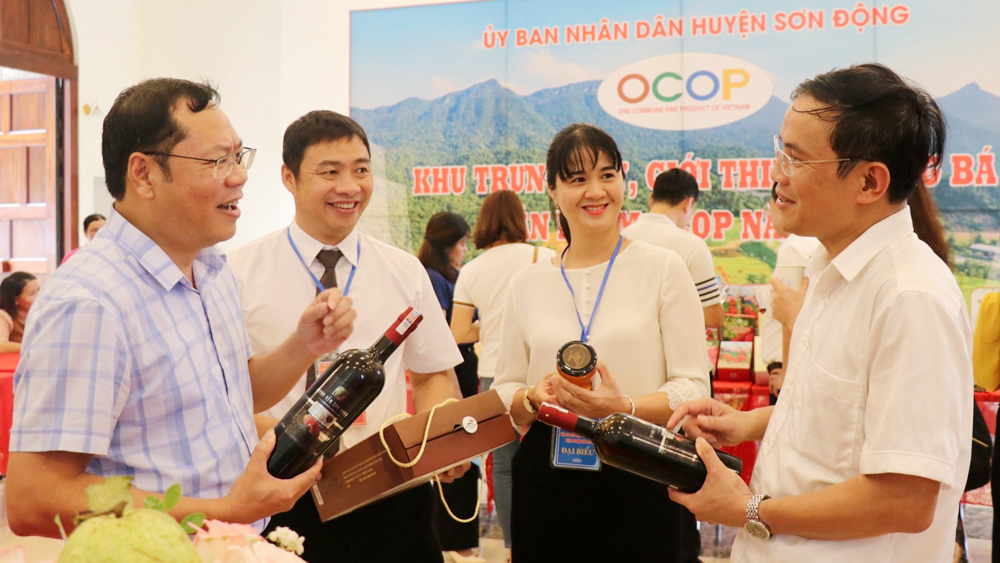
Delegates visit and explore OCOP products of Son Dong district in 2023
Not to let the traditional craft disappear, the People’s Committee of Tuan Dao commune assigned Son Dong Organic Honey Bee Cooperative in Linh Phu village to expand the incense and candle production and business.
As a stakeholder, the cooperative invested more than 30 million VND (1,230 USD) in installing an automatic incense production line and buying raw material mixers and grinders. To preserve the unique aroma of Bong Am incense, the cooperative only uses canarium resin and vetiver roots as raw materials. It has set up consumption linkages with a number of cooperatives and businesses specializing in incense production in Hanoi’s Ung Hoa district.
Currently, every day, the cooperative produces more than 100,000 incense sticks, which are sold out right after production.
In 2023, the district has 10 products registered for OCOP evaluation and classification, including seven new and three re-evaluated and reclassified products. These are all typical and traditional items of the district such as Son Dong vermicelli, Thanh Luan bamboo shoots, six-fingered chicken eggs, Tay Yen Tu honey, Yen Dinh roasted meat and Huu San castrated chicken.
To engage three products namely Tay Yen Tu honey, Tay Yen Tu green lim mushroom and Tay Yen Tu leaf yeast wine in re-evaluation and reclassification, the Thao Moc Linh Agricultural Service Cooperative switched from paper and plastic packaging to baskets made of bamboo and rattan; and printed the product brand directly on the wine bottles to avoid counterfeits.
Similarly, after one year of operation, from 200 parent chickens, Phu Cuong Cooperative in Na Vang village, Van Son commune has more than 1,000 parent chickens and 2,000-3,000 commercial chickens. In particular, it has the first product registered for OCOP evaluation and classification: six-fingered chicken eggs.
Support policies
According to statistics, currently the whole district has seven products achieving 3-star OCOP status, including Tay Yen Tu dried bamboo shoots, Tay Yen Tu green lim mushroom wine, Son Dong forest honey, Son Dong green lim mushroom, seedless black grape; xoan orange, and Nhu Bao leaf yeast wine.
Given stars, products are sold favorably at higher prices. For example, the 3-star OCOP green lim mushroom product of the Son Dong Green Lim Mushroom Cooperative in Cam Dan commune brings high income to members and affiliated farmers. Currently, the average price ranges from 700,000 VND to 1 million VND (41 USD) per kg. After deducting costs, locals earn a profit of 300,000-400,000 VND (16.4 USD) per kg.
To develop products with potential and advantages, creating strong changes in economic development in rural areas, the standing board of the district Party Committee issued a Resolution on leadership in building typical, potential and OCOP products in the district in the 2021-2025 period. The district strives to have 20 OCOP products with 3 stars or higher by 2025.
Realizing the above resolution, the district People’s Council issued a resolution stipulating support mechanisms for OCOP products. Recently, the district People’s Committee financed 375 million VND (15,400 USD) to four stakeholders whose products were recognized.
Le Duc Thang, Standing Vice Chairman of the district People’s Committee said: “To complete the goal of having 20 OCOP products by 2025, the district has paid attention to supporting stakeholders to improve quality and add value of products, thereby attracting more participants.”
Sy Quyet
Bac Giang online – en.baobacgiang.com.vn

